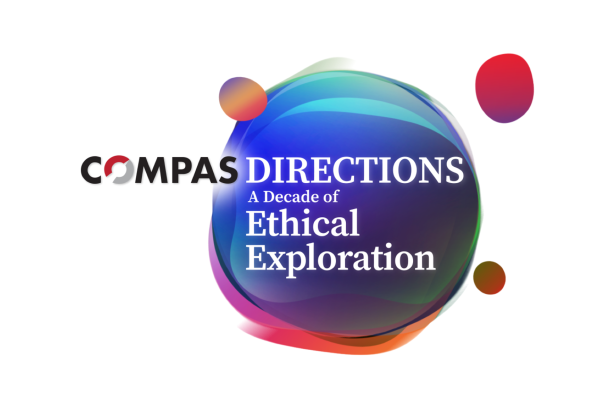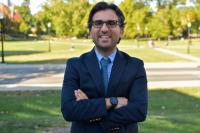
Overview
Immigration remains an extremely challenging and polarizing topic. On the one hand, there are debates about the ways diverse groups are benefited or harmed when borders are opened or closed. For example, refugees can find safety and work opportunities, and all parties can benefit from cultural exchange and the potential for increased economic activity, but states also have concerns about security threats. On the other hand, there are impassioned debates about whether states have a right to exclude immigrants and whether any prospective immigrants have a right to be admitted into countries to which they are seeking to immigrate. Join us for a moderated panel discussion about the question, "(When) do states have a right to seal their borders?"
This event is part of CEHV's 2023-24 COMPAS Program COMPAS Directions.
Speakers
Sefa Secen (OSU)

Sefa Secen is currently a postdoctoral scholar at the Mershon Center for International Security Studies at The Ohio State University and a research fellow on the Islamic Family Law Project at Syracuse University. He is also a commissioning editor at E-International Relations. Secen received his Ph.D. in Political Science from the Maxwell School of Citizenship and Public Affairs, Syracuse University in July 2022. He primarily studies party policies and public attitudes toward refugees with a focus on the social construction of threat and security perceptions. His regional specializations are the Middle East and Western Europe.
His coauthored book project, under contract with Cambridge University Press (CUP), investigates how the new immigrant and refugee flows have shaped Turkish politics, the historically competing Turkish and Kurdish nationalist visions in particular. Drawing on an original media dataset, party manifestos, and survey data, this book offers valuable insights into the complex interactions between refugee politics, electoral dynamics, and the emergence of new political tendencies in Turkey.
Secen’s research has been published or is forthcoming in leading journals and media outlets, including the Journal of Global Security Studies, European Politics and Society, Turkish Studies, Muslim World Journal of Human Rights, Forced Migration Review, the Journal of Privacy and Confidentiality, the Washington Post, and E-International Relations. His research has been funded by the W.K. Kellogg Foundation, Andrew Berlin Family National Security Research Fund, the Moynihan Institute at Syracuse University, and the Office of International Affairs (OIA) at The Ohio State University.
Kit Wellman (Washington University in St. Louis)

Christopher “Kit” Wellman is a Professor of Philosophy at Washington University in St. Louis. Wellman works in ethics, specializing in political and legal philosophy. The two topics on which he has written most extensively are our rights to political self-determination (including secession) and our political obligations (especially the duty to obey the law). He is currently working on a variety of practical and theoretical issues related to international law.
Wellman has published in a variety of journals, including American Philosophical Quarterly, Ethics, Law and Philosophy, Legal Theory, Pacific Philosophical Quarterly, Philosophy & Public Affairs, Political Theory, Social Philosophy & Policy, and Social Theory and Practice. His books include Debating the Ethics of Immigration: Is There a Right to Exclude? (with Phillip Cole), A Liberal Theory of International Justice
(with Andrew Altman), A Theory of Secession: The Case for Political Self-Determination, and (with John Simmons) Is There a Duty to Obey the Law? For Blackwell Publishers, he has edited (with R.G. Frey) A Companion to Applied Ethics and (with Andrew I. Cohen) Contemporary Debates in Applied Ethics.
Moderator: Aaron Yarmel (OSU)

Aaron Yarmel is the Associate Director of the Center for Ethics and Human Values at The Ohio State University. In addition to overseeing all CEHV programs, Aaron leads its efforts on dialogue facilitation and skill building, outreach, and the ETHOS Fellows program as part of the University's Shared Values Initiative. Aaron also teaches Conversations on Morality, Politics, and Society (ARTSSCI 2400/2400E) as well as ethics courses through the Department of Philosophy. Outside of his role with CEHV, he is the Founding Director of Philosophy Counseling and Consulting: an organization that offers dialogue facilitation training and philosophical counseling in the Logic-Based Therapy tradition.
Aaron’s research focuses on philosophy for children, AI ethics, social change, and two-level utilitarianism. He offers Philosophy for Children workshops through the Philosophy, Learning, and Teaching Organization (PLATO) and in collaboration with the Institute for the Advancement of Philosophy for Children. He serves on the board of directors and executive board (as treasurer) of PLATO and on the editorial board of Analytic Teaching and Philosophical Praxis. Aaron holds a PhD in philosophy from the University of Wisconsin-Madison, an MSc in Philosophy of Science from the London School of Economics, and a Bachelor of Music from the Eastman School of Music.
